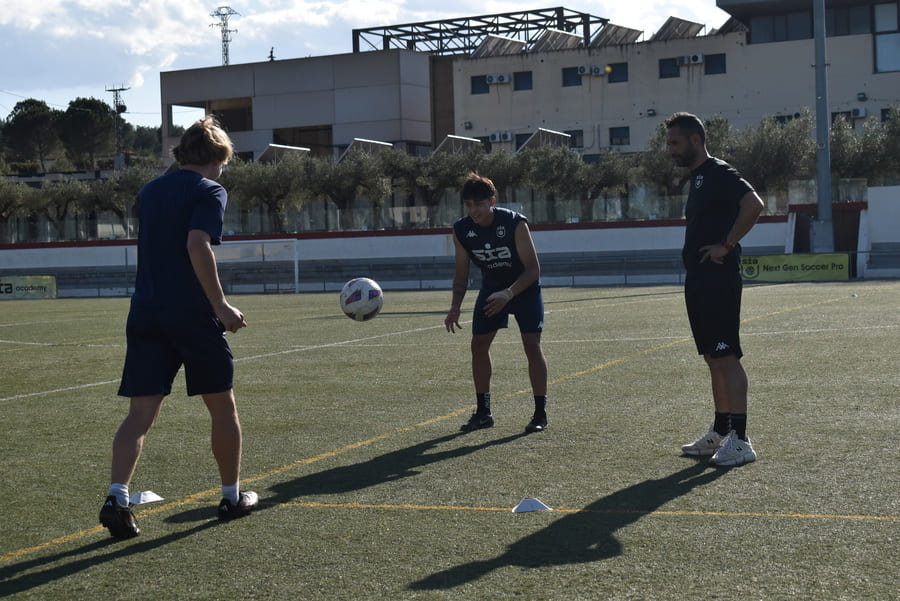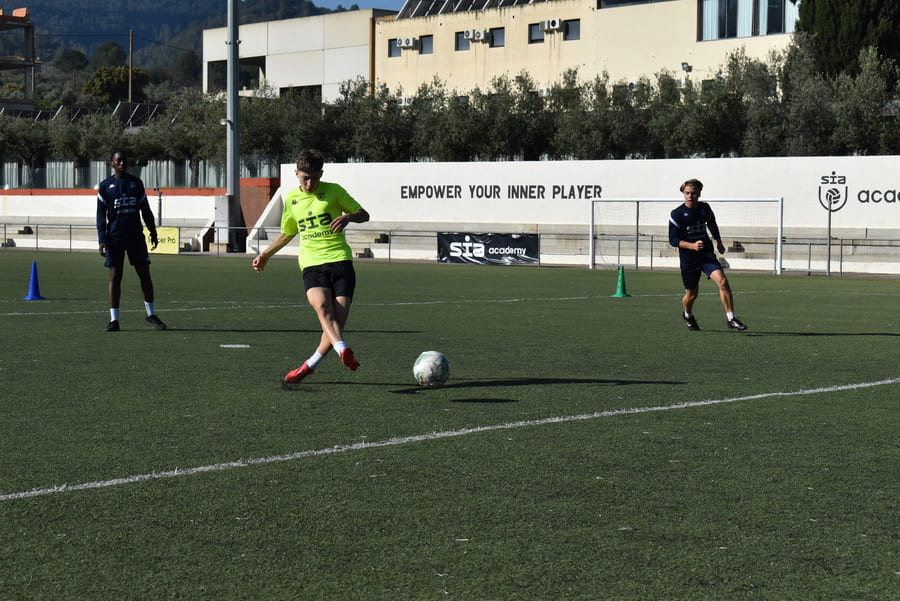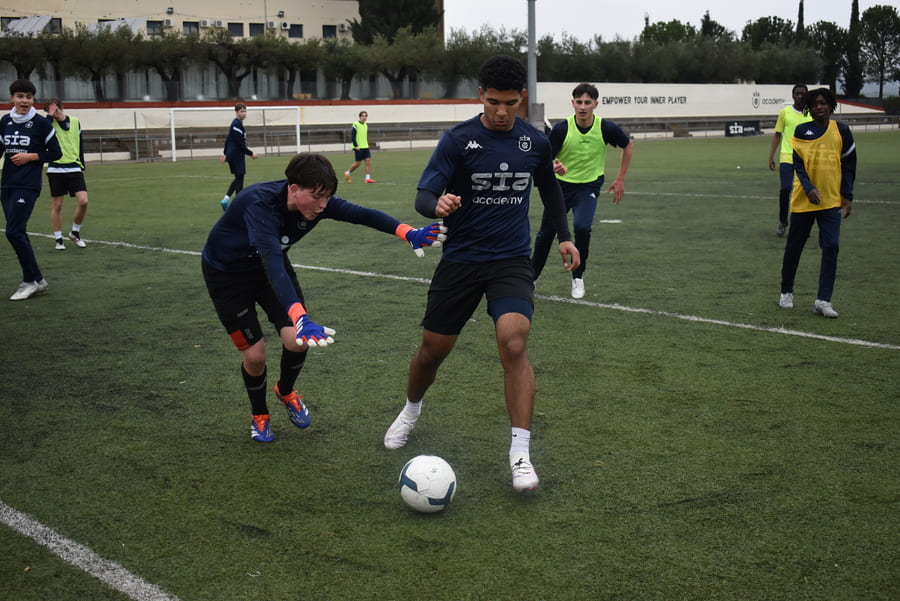The path to a football career is full of dreams, challenges, and sacrifices. Thousands of young players dream of reaching the top, but only a few manage to establish themselves in the professional world. The difference is not always pure talent, but rather the ability to set realistic goals that serve as a guide to move forward step by step. Setting achievable goals does not mean settling; it means building a roadmap that allows growth with consistency, patience, and long-term vision.
In this sense, SIA Academy has become an international reference, offering a high-performance environment where footballers learn not only technique and tactics but also how to manage their careers with a professional mindset.
As José Luis, coach at the academy, explains: “A footballer without clear goals is like a ship without direction; he may have great potential, but he doesn’t know where to sail”.
Table of contents
The value of having a plan
The first step to advancing in football is knowing exactly what you want to achieve. It is not enough to dream of playing in a big stadium: those dreams must be divided into achievable stages. For example, a young striker may set an immediate goal of improving finishing in the box, then consolidating a spot in the starting eleven, and later attracting the attention of scouts.
At SIA Academy, players are taught that goals are not just an end in themselves but tools to maintain motivation and give purpose to each training session. This way, every day on the pitch becomes a step within a structured plan.

Realism versus unrealistic expectations
Many young players fall into the trap of setting impossible short-term goals. This creates frustration and, in some cases, early abandonment. Realism does not mean giving up on dreams, but rather adapting goals to the player’s current situation. A player starting in regional leagues cannot expect to be signed immediately by a top club, but he can work to stand out in his category and gradually move up.
José Luis puts it clearly: “Our job is to help players dream, but also to make them understand that growth in football is a process. Those who skip steps end up paying a very high price”.
Short, medium, and long-term goals
One of the keys used by the academy is structuring goals in different time horizons. Short-term goals focus on immediate improvements, such as perfecting a technical gesture or increasing physical endurance. Medium-term goals aim at consolidating a role within the team or improving performance stats over a season. Finally, long-term goals target more ambitious milestones, such as signing a professional contract or reaching a higher league.
This system prevents anxiety and allows every intermediate achievement to be celebrated as a success along the way.
The importance of personalization
Every footballer is unique. A goalkeeper does not have the same resources as a winger, nor does a creative midfielder play the same way as a central defender. That is why SIA Academy adapts each player’s objectives to his characteristics, position, and style of play. While a full-back may work on improving crosses and speed, a midfielder focuses on vision and passing accuracy.
This personalization makes the process realistic and, above all, measurable. In this way, players see how their effort translates into concrete progress rather than abstract aspirations.
Turning goals into habits
A common mistake is staying at the stage of setting goals without transforming them into routines. For a footballer to reach his objectives, he must work on them every single day. Discipline is the bridge between goals and results.
At SIA Academy, emphasis is placed on creating sustainable habits: spending extra minutes on ball control, maintaining proper nutrition, or respecting recovery times. In this way, goals stop being just ideas and become part of the player’s daily life.

Overcoming pressure and learning from mistakes
Football is a demanding sport where pressure and mistakes are part of the journey. This is where mentality comes into play. A player who sets realistic goals understands that a defeat does not mean failure but rather a learning opportunity. Resilience becomes one of the most valuable qualities to keep moving forward.
At the academy, coaches work with players so they can manage the pressure of decisive matches and turn mistakes into lessons. Thus, goals are not abandoned at the first difficulty but instead are adjusted and strengthened through experience.
The role of a professional environment
Setting realistic goals also depends on the support system. It is very different for a player to guide himself alone than to be surrounded by professionals. SIA Academy provides an environment where footballers receive constant feedback, performance analysis, and the reassurance of following a plan designed to maximize their potential.
This support prevents players from making rash decisions or setting unrealistic expectations. It also allows them to focus on improving day by day, knowing they are surrounded by a trustworthy environment.
A football career is not built overnight. It requires patience, consistency, and above all, realistic goals that guide every step. Dreaming big is essential, but without forgetting that the journey is full of stages that must be overcome with discipline and humility.
SIA Academy has established itself as a place where footballers learn not only to improve technically but also to plan their future intelligently. Thanks to its methodology, each player discovers how to turn aspirations into achievable goals, and how those goals can become habits that bring them closer to the elite.
As José Luis sums it up: “A well-defined goal turns talent into results. And when a player understands this, he starts building a solid career”.
Ultimately, setting realistic goals does not mean limiting yourself, but ensuring that every step brings the footballer closer to his maximum potential. And with the right support, dreams stop being distant promises and become concrete action plans.






